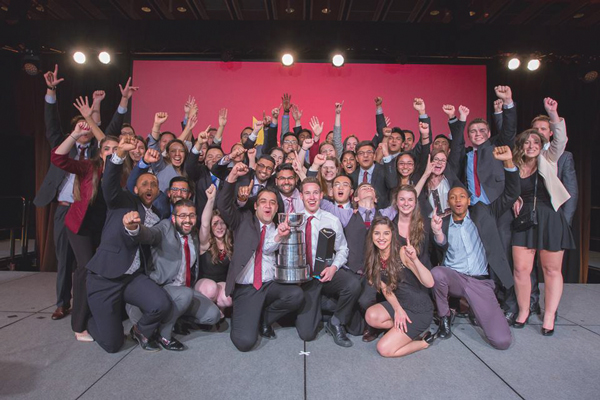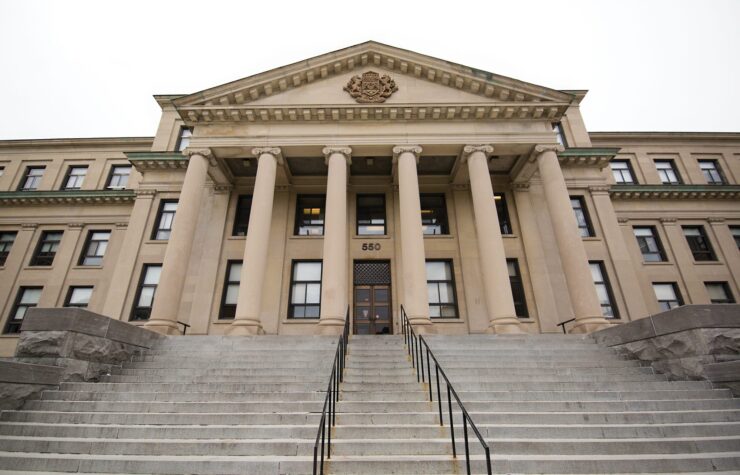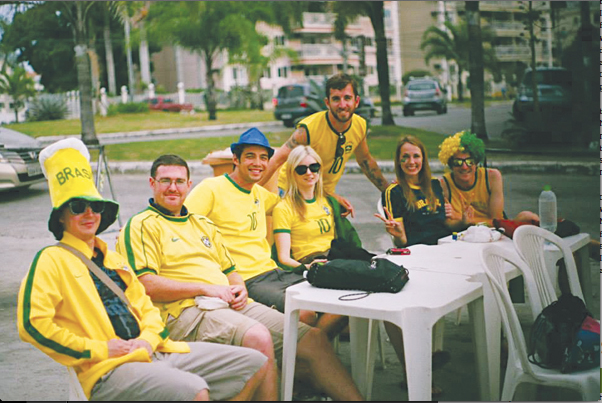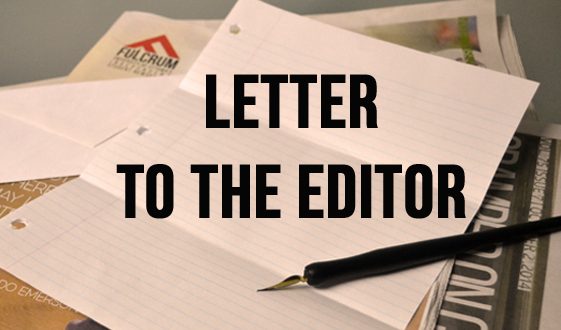Enactus looks to show it has the most creative, sustainable business
The Enactus uOttawa team at nationals. Photo: Courtesy of Enactus uOttawa
Enactus uOttawa, a University of Ottawa club that looks to create business solutions to social justice issues, is going to Johannesburg, South Africa to compete in the Enactus World Cup.
There are over 15,000 Enactus member universities and colleges around the world, and almost 70 in Canada. The top clubs will compete to see which team has the most profitable and socially sustainable business model on Oct. 14.
At a national competition last May, a group of judges, comprised of prominent business leaders in Canada, named Enactus uOttawa national champions, ahead of 68 other teams in Canada.
“The World Cup is an amazing opportunity,” said Corey Ellis, president of Enactus uOttawa. “You get to see what’s possible and what students around the world are doing.”
The businesses presented at the World Cup are meant to be successful economically, but also perform a social and environmental good.
“We create social innovation projects that tackle some of the social and environmental issues that we see in our community using sustainable business,” said Ellis.
The Enactus uOttawa team is made up of 112 members, coming from seven faculties across campus, with the majority studying at the Telfer School of Management.
The group will present a number of businesses at the Enactus World Cup. According to Ellis, all of the projects being showcased are community-based.
One such business is CigBins, which looks to reduce cigarette butt litter with specially designed bins, while also employing people suffering from mental illness.
Another, Canada Sports Officials, provides employment for homeless men and women by training and certifying them to become soccer referees.
“With all of our projects, the big thing that I notice is an increase in confidence with the people we work with,” said Ellis. “These people are in difficult circumstances, and our programs show them that they’ve got potential.”
The concept of competing to see who is better at helping people may seem counterintuitive, but Ellis sees it as an asset. “I think the whole competitive element of Enactus is what drives excellence,” he said.
As it turns out, Enactus uOttawa was formed after U of O students went to watch the 2012 World Cup in Washington four years ago.
“That’s where our founders got inspired,” said Ellis. “You’re watching presentations from teams from India, or the UK, or Morocco, that are doing these crazy innovative projects to tackle some of the toughest issues in their communities.”
Ellis said Enactus uOttawa is hoping that it will be able to capture the spirit of their previous World Cup journey when they fly to Johannesburg.
“We’re sending a team of uOttawa students that we see as up-and-coming business leaders,” said Ellis. “We want them to see what Enactus is capable of doing, and really get inspired.”
Enactus uOttawa is also fundraising to lessen the cost for their members to go to the Enactus World Cup in South Africa. If you would like to contribute, visit https://uottawa.useed.net/projects/259/home.





